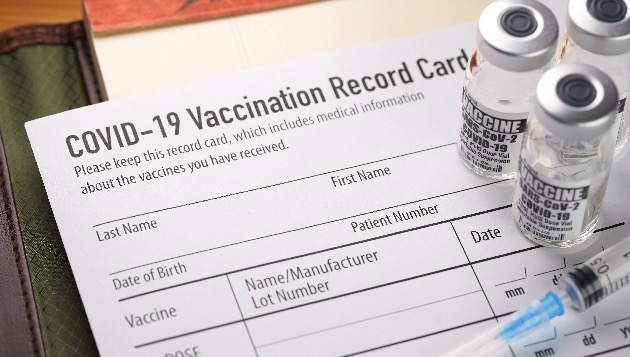By LAURA ROMERO, ABC News(NEW YORK) — As the COVID-19 vaccine rollout reaches residents of nursing homes across the country, long-term care advocates remain concerned that many of the nation’s most vulnerable citizens — who are living in similar, high-risk congregate settings — are being left to wait.Assisted living facilities, which range from small homes to large complexes, are aimed at older people who are largely independent but still in need of medical or personal care. Because of the communal nature of the facilities, assisted living residents face many of the same increased risks for the coronavirus as those in nursing homes.”The risk of community spread and transmission in an assisted living facility is just as high as it is in a nursing home,” said Zach Shamberg, president of the Pennsylvania Health Care Association.It is difficult to know the extent to which residents and staff in assisted living facilities have been affected by COVID-19 because assisted living facilities are not federally regulated, so many states do not publicly collect data. But the Kaiser Family Foundation reports that more than 100,000 residents and staff at long-term care facilities had died as of November.Advocates say the facilities house a forgotten population of people vulnerable to the virus. As COVID-19 vaccine distribution plans were crafted and began rolling out, many states did not include assisted living facilities in the same high-priority first phase to receive the vaccine.In Pennsylvania, for instance, assisted living and personal care residents were not originally in the first group to receive the vaccine, leaving those residents to wait up to several months to get the vaccine. Just last week, Pennsylvania Gov. Tom Wolf announced his administration is expanding vaccination to long-term care facilities, and requested assisted living residents and personal care residents be included in Phase 1A.”If we don’t change the pace that Pennsylvania is on currently, we would expect assisted living and personal care residents to receive the second dose sometime in April or May or even June,” Shamberg said. “We are talking about potentially still vaccinating our most vulnerable residents in the summer months.”Mike Dark, an attorney for the California Advocates for Nursing Home Reform and a member of the California Vaccine Advisory Committee, told ABC News that assisted living facilities were not prioritized because states believed they only had enough vaccines for nursing homes.”[Assisted living] facilities are largely falling through the cracks in the distribution program and the results will be catastrophic if this isn’t addressed,” Dark said.In New Hampshire, Phase 1A includes both nursing homes and assisted living residents. But officials like Brendan Williams, the president of the New Hampshire Healthcare Association, told ABC News that it has been difficult to get all long-term care residents vaccinated, even in retirement communities where assisted living and nursing home residents are in the same location.”Even where assisted living and nursing home residents are housed under the same roof, it has taken browbeating CVS to get them to follow the state policy that in such an instance all residents should be vaccinated,” Williams said.”We can’t even efficiently vaccinate our most vulnerable, place-bound citizens,” added Williams. “We have a very elderly assisted living population here in New Hampshire that has not been spared deadly outbreaks.”In Indiana, a spokesperson for the Indiana Health Care Association told ABC News that independent assisted living facilities are “understandably frustrated” because scheduling for the clinics began just two weeks ago.The overall timeline for vaccine distribution in long-term care facilities has been pushed back since late last year, when former Secretary Alex Azar told CBS’ Face The Nation that all nursing home residents could be vaccinated by Christmas.”The vaccines are going out. As soon as they receive vaccine, this is according to the governors telling us to ship to them, we can have every nursing home patient vaccinated in the United States by Christmas,” Azar said.Then, on a call with LeadingAge, an elder advocacy group, former Surgeon General Jerome Adams said he believed vaccinations among nursing home residents and workers would be completed by the end of January.”We’re going to make sure we get our nursing home workers and residents vaccinated, and it is truly our hope to have that completed by the end of January,” said Adams, adding, “I really think it is an achievable timeline.”Both Walgreens and CVS, the companies responsible for vaccinating the majority of long-term care residents, say they expect to complete the administration of the first doses of COVID-19 vaccines in skilled nursing facilities by Jan. 25, with the second doses to follow.There is no projected date for when residents and staff at assisted living facilities will be completely vaccinated.For Mike Wasserman, the past president of the California Association for Long Term Care Medicine and a member of the California’s Vaccine Advisory Committee, vaccine rollout in assisted living facilities needs to be a priority for the Biden administration.”The challenge will be, how do we turn the Titanic around?” Wasserman said.Many assisted living facilities in California, Wasserman said, don’t have an appointment to receive the vaccine until March.”They are not being prioritized,” said Wasserman. “Residents in assisted living facilities need the vaccine just as much as nursing home residents.”Copyright © 2021, ABC Audio. All rights reserved.












